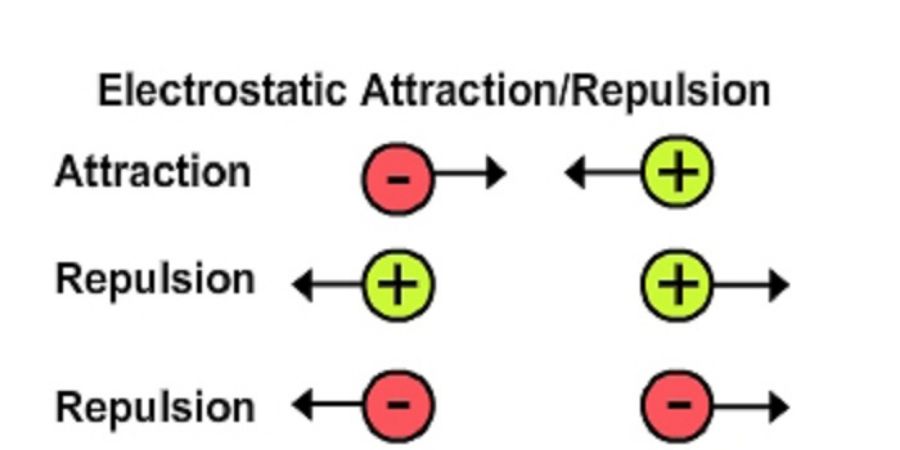

When the material is charged with static electricity they behave in a manner different from normal. for instant, if you placed a +tively charged ball near one which is charged negatively, the ball will attract each other. if the charges are great enough and the ball is light and free to move, they will come into contact. Whether there are free to move or not, a force of attraction always exists between, unlike charge.
This attraction takes place because the excess electrons of a -tive charge are trying to find a place where extra electrons are needed. if you bring materials of opposite charges together, the excess electrons of the negative charge will transfer to the materials have lack electrons.
This transfer or crossing over of electrons from a negatively charged or positively charged is called "discharge".using two balls with the same type of charge either negatively charged or positively charged you would find that they repel each other.
Transfer static charge through content:-

While most static charges are due to friction, you will find that they may also be caused by other means. if an object has a static charge, it will influence all other nears objects .this influence may be exerted through content or induction.
+tive charged means a lack of electrons and always attract electrons, -tive charged means an excess electron and always repels electrons.
if you should touch a positively charged rod to an uncharged metal bar, it will attract electrons in the bar to the point of contact. some of these electrons will leave the bar and enter the rod, causing the bar to become positively charged and decreasing the positively charged of the rod.
By touching a negatively charged rod to the uncharged metal bar, you will be caused the bar also to become negatively charged. as the negatively charged rod is brought near the uncharged metal bar, electrons in that portion of the bar nearest the rod would be repelled toward the side opposite the rod.
The portion of the bar near the rod will then be +tively charged and the opposite side will be negatively charged as the rod is touched to the bar, some of the excess electrons in the -tively charged rod will flow into the bar to neutralize the +tively charged in the portion of the bar but the opposite side of the bar retains it's negatively charged.
When the rod is lifted away from the bar, the -tively charged remains in the bar, and the rod is still negatively charged but has very few excess electrons. when a charged object touches an uncharged object, it loses some of its charges to the uncharged object untiled reached has the same amount of charge.


